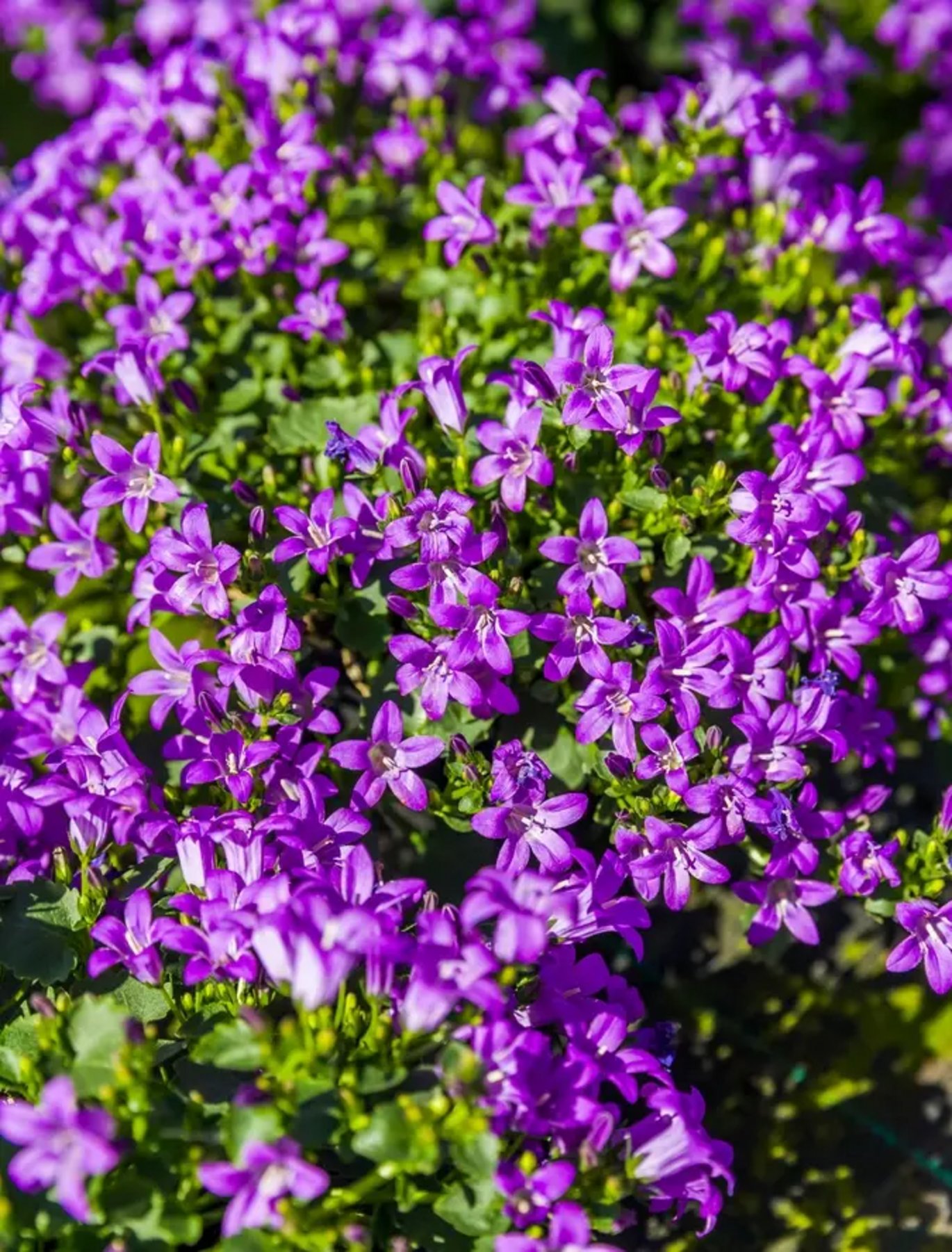New Research: New CRISPR/Cas technology makes spraying to ensure plant longevity redundant
New research demonstrates the potential to extend the shelf life of fruits, vegetables, and flowers without the use of chemical agents. Using CRISPR technology, researchers from Aarhus University have succeeded in reducing the sensitivity of the ornamental plant Campanula portenschlagiana to ethylene—a hormone known for accelerating flower aging and causing premature fruit ripening.

Ethylene is a plant hormone that accelerates fruit and flower ripening. When plants are exposed to high levels of externally supplied ethylene during transportation and storage, it has a detrimental effect on many plants. Flowers wilt, and fruits ripen too quickly, significantly reducing the quality of both flowers and fruits. This decline in quality plays a significant economic role in fruit and flower production.
One method to control the impact of externally supplied ethylene is by using chemical substances that block its uptake. However, chemical treatments of plants are associated with risks to human health and/or the environment. Hence, there has long been a focus on finding methods to limit or completely cease the use of chemical substances.
Why spray when you can breed for reduced sensitivity to ethylene?
That's precisely what a group of researchers at Aarhus University has achieved. They have developed plants that are less sensitive to ethylene.
"Some specific genes encoding Eil1 transcription factors are crucial for how plants respond to ethylene. Our research has shown that if we alter these genes (mutate them), the plant is not affected by the presence of ethylene around it, even though it is actually present," says Professor Henrik Brinch-Pedersen from the Department of Agroecology at Aarhus University, continuing
"So, we can increase the plant's resistance to externally supplied ethylene without affecting the plant's internal ethylene balance."
Attempts to achieve increased ethylene tolerance using traditional mutation methods (random mutations obtained, for example, through irradiation or chemical treatments) have previously failed. Now, using modern CRISPR/Cas technology, researchers have succeeded in mutating up to two Eil1 genes in the flowers of the ornamental plant Campanula portenschlagiana.
The mutations significantly increase tolerance to ethylene in the surroundings, and this increase is directly proportional to the number of mutated Eil1 genes.
In other words, plants no longer need to be sprayed with chemical substances that block ethylene uptake. This means that pesticide use can be reduced or perhaps even entirely avoided.
The new plant breeding techniques showcase their strength
The project demonstrates one of the strengths of the new plant breeding techniques such as CRISPR/Cas.
"Being able to induce mutations in targeted locations in the plant's genome, rather than thousands of other randomly scattered locations across the genome, makes a huge difference," says Inger Holme from Department of Agroecology.
In this case, the goal has been to study plant ethylene responses and breed towards a plant that doesn't require chemical spraying.
"This is an important result. It opens up for the possibility of breeding plants that are naturally better at handling ethylene. This could have a significant impact on the flower industry, greenhouse horticulture, the fruit sector, and perhaps even the entire agricultural industry," says Christina R. Ingvardsen from Department of Agroecology.
If the same gene modification can be transferred to other plant varieties, it could potentially help extend the shelf life of fruits, vegetables, and flowers during transportation and storage without using chemicals.
| ITEM | CONTENT AND PURPOSE |
|---|---|
| External collaborators | Department of Agroecology and Department of Bioscience and Technology at Aarhus University and PKM Innovation ApS. |
| External funding | This study was supported by the Danish AgriFish Agency (Ministry of Food, Agriculture and Fisheries, GUDP grant no. 34009-15-1010). |
| Conflict of interest | None |
| Link to the scientific article | "CRISPR/Cas9-mediated mutation of Eil1 transcription factor genes affects exogenous ethylene tolerance and early flower senescence in Campanula portenschlagiana" published in the journal Plant Biotechnology Journal. It was written by Inger B. Holme, Christina R. Ingvardsen, Giuseppe Dionisio, Dagmara Podzimska-Sroka, Kell Kristiansen, Anders Feilberg, and Henrik Brinch-Pedersen. |
| Contact information | Academic staff member Inger Holme, Department of Agroecology, Aarhus University. Phone: 87158238 or email: inger.holme@agro.au.dk Academic staff member Christina R. Ingvardsen, Department of Agroecology, Aarhus University. Phone: 87154982 or email: christina.ingvardsen@agro.au.dk Senior Advisor Giuseppe Dionisio, Department of Agroecology, Aarhus University, Department of Agroecology, Aarhus University. Professor Henrik Brinch-Pedersen, Department of Agroecology, Aarhus University. Phone: 51239017 or email: hbp@agro.au.dk |
